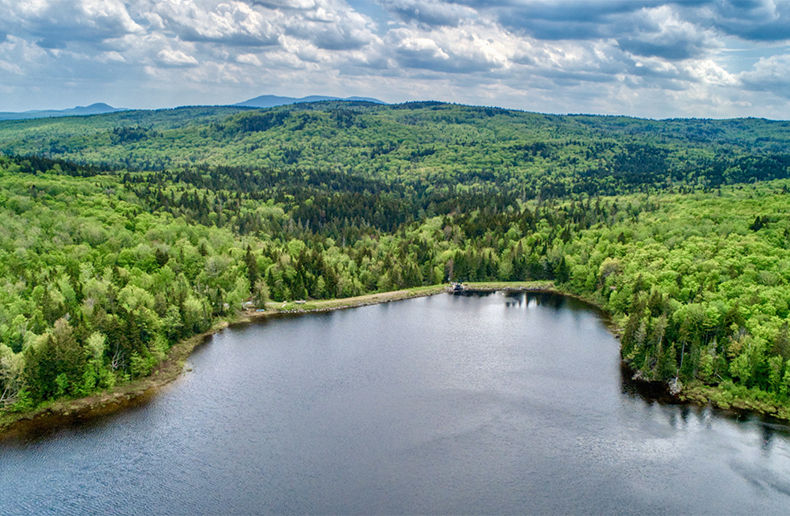Hancock Natural Resource Group, a Manulife Investment Management company, announced on August 12 the acquisition of 89,800 acres of timberland in Maine.
“This investment is classified as impact-first with the core of the investment thesis centered on the timberlands being used primarily to store carbon,” explained the company in a statement.
The acquired property is located in Somerset County, Maine along the border of Quebec and has a diverse mix of naturally regenerated spruce-fir and northern hardwood tree species.
The investment was made on behalf of John Hancock Life Insurance Company (U.S.A), and its parent, Manulife. Manulife has reserved the option to sell the carbon credits as offsets or use the carbon removals as insets for the purpose of meeting the firm's net zero commitments.
"We are well-positioned to seek positive climate impact and to invest in assets to create carbon sequestration and other conservation opportunities derived from forests for the benefit of our clients," said Tom Sarno, global head of timberland investments, Manulife Investment Management. "We believe impact-first investments can meet the needs of those who are interested in offsetting carbon emissions and who may value other positive environmental or social impacts as well as generating financial returns."
Sarah Chapman, global chief sustainability officer, Manulife, stated that acquiring the timberland continues the execution of Manulife’s climate action plan shared in May "We're proud to share that Manulife is net zero in our operations due to the carbon removals from our substantial owned and operated forests and farmland outweighing emissions. We are confident this asset will continue to meet the objectives of carbon sequestration and positive climate impact for our portfolio."
Manulife Investment Management says its global timberland and agriculture portfolios have removed an average of 2.24 million metric tons of CO2 from the atmosphere annually over the past 5 years.







